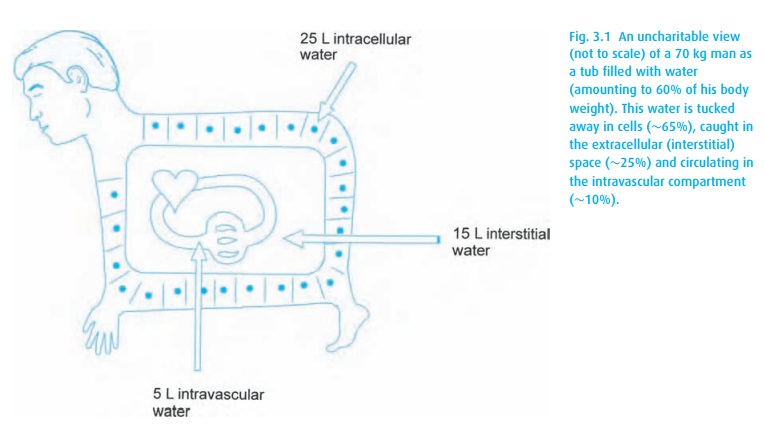Chapter: Essential Anesthesia From Science to Practice : Clinical management : Vascular access and fluid management
Vascular access
Vascular access
During
anesthesia, and whenever the oral route is unavailable, we give fluids
par-enterally. As long as we need to give only physiologic solutions, we can
administer them subcutaneously; however, the uptake and distribution of such a
depot of fluids takes time. Much preferred and much faster is the intravenous
route. Thus, vascular access assumes a critically important role in the peri-operative
care of patients. The vascular bed also offers an ideal route for many drugs
that need to be distributed throughout the body. Finally, intravascular
pressures provide infor-mation on cardiovascular function. Thus, vascular
access has become a skill, and fluid management a science, mastered by
anesthesiologists.
Our skin is a wonderful organ. It wraps us securely into an elastic, fairly tough, self-repairing, protective envelope. When we break this envelope, we expose the patient to considerable risks. In addition to hazards associated with the actual placement of needles and catheters, infectious complications contribute signifi-cantly to morbidity and mortality of the hospitalized patient, particularly in the intensive care unit where we frequently employ central venous access. Infec-tious complications include local site infection, catheter-related bloodstream infections, septic thrombophlebitis, endocarditis, and other metastatic infections such as osteomyelitis and abscesses of lung or brain.

Related Topics